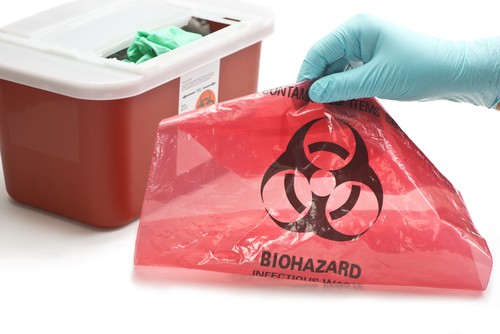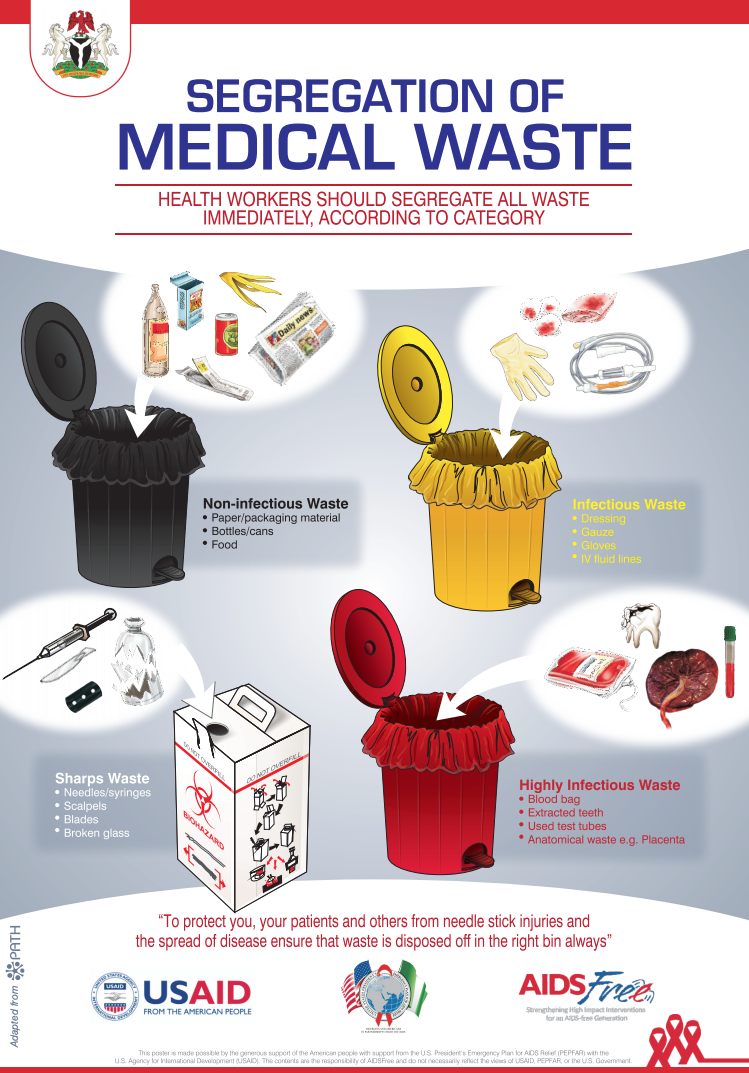Certified and Reliable Medical Waste Removal Service: Partnering for a Cleanser Future
Wiki Article
Correct Disposal Techniques for Clinical Waste
Proper disposal strategies for medical waste are of utmost significance in ensuring the security of both health care workers and the basic public. The ideal handling and disposal of medical waste is critical to stop the spread of infectious illness and the contamination of the atmosphere. This includes the secure disposal of sharps, contagious waste, and pharmaceutical waste. Sticking to rigorous standards established by regulatory bodies is crucial to preserve conformity with legal policies and secure public wellness. This introduction will explore the value of appropriate medical waste disposal, provide standards for taking care of various kinds of waste, and emphasize the demand for health care centers to embrace best practices. By following these standards, doctor can add to a safer and healthier atmosphere for all.Importance of Correct Medical Garbage Disposal
Correct clinical waste disposal is of utmost relevance in order to prevent the spread of infections and safeguard public health and wellness. Medical waste describes any waste created throughout medical treatments or from the healthcare sector. This waste can consist of infectious materials, such as blood or bodily fluids, sharps, drugs, and other potentially harmful compounds. If not thrown away appropriately, clinical waste can posture significant dangers to health care employees, people, and the basic public.Among the primary reasons for correct clinical waste disposal is to avoid the spread of infections. Clinical waste can harbor numerous virus, consisting of germs, viruses, and other microorganisms that can cause diseases. Improper disposal can bring about the contamination of surface areas, water sources, and air, increasing the risk of infections. By safely disposing of medical waste, the chances of direct exposure to these virus are substantially lowered, guaranteeing the security of healthcare workers, patients, and the neighborhood at large.
Furthermore, appropriate clinical waste disposal is vital for safeguarding public health. Medical waste that is not properly managed can contaminate dirt, water bodies, and even food resources. This can result in the transmission of diseases to animals and humans, positioning a considerable public wellness danger (WasteX Medical Waste Disposal). By following correct disposal methods, such as containment, segregation, and treatment, we can decrease the possible risks connected with medical waste and secure the wellness of the neighborhood.
Handling and Disposing of Sharps
When it comes to the handling and disposal of sharps, adherence to appropriate procedures is vital for guaranteeing the safety and security of medical care employees and avoiding the threat of injury or infection. Sharps consist of needles, syringes, lancets, and various other items with the possible to puncture or cut the skin. Because of their potential to transfer bloodborne virus, such as HIV and hepatitis B and C, it is crucial to get rid of and take care of of sharps correctly.
Disposal of sharps containers must adhere to regional regulations and standards. It is best to make use of licensed clinical waste disposal solutions that specialize in the appropriate handling and disposal of sharps to make sure conformity with regulations and lessen threats to medical care employees and the environment.
Guidelines for Transmittable Waste Disposal
Health care centers must stick to stringent guidelines for the disposal of infectious waste to avoid the spread of microorganisms and safeguard public health. Contagious waste, additionally referred to as biohazardous or biomedical waste, refers to products that are possibly infected with infectious agents or various other harmful materials. These materials consist of blood-soaked plasters, used specimens, handwear covers, and cultures. Proper disposal of contagious waste is important to make sure the safety and health of medical care workers, clients, and the basic public.The standards for transmittable waste disposal vary depending on the nation and neighborhood policies, yet there are some common techniques that health care facilities need to comply with. All infectious waste ought to be segregated from other kinds of waste at the point of generation. Infectious waste ought to be delivered and disposed of by certified waste monitoring firms that specialize in taking care of biomedical waste.
It is very important for healthcare facilities to have comprehensive training programs in area to educate team on the correct procedures for transmittable garbage disposal. This includes training on waste segregation, storage, and managing strategies. By complying with these standards, medical care centers can successfully take care of contagious waste, lower the danger of infections, and secure public health.
Ideal Practices for Pharmaceutical Garbage Disposal
Pharmaceutical garbage disposal should always be conducted regularly and in conformity with specialist standards. Correct monitoring of pharmaceutical waste is essential to shield public health and the environment. Pharmaceuticals can posture a significant threat if not gotten rid of properly, as they might pollute water resources, injury marine life, or perhaps contribute to the growth of antibiotic resistance.One of the most effective techniques for pharmaceutical waste disposal is to establish an assigned collection system within healthcare facilities. medical waste removal service. This system must include separate containers for different kinds of pharmaceutical waste, such as expired medicines, extra medications, and contaminated products. These containers need to be plainly classified and located in easily obtainable areas to motivate proper disposal by health care specialists
Furthermore, it is vital to inform medical care team about the correct handling and disposal of pharmaceutical waste. Training programs should concentrate on determining various sorts of pharmaceutical waste, comprehending the associated risks, and adhering to the suitable disposal procedures. Normal reminders and updates must be supplied to guarantee compliance with disposal guidelines.
In enhancement to interior methods, health care centers need to likewise establish collaborations with licensed waste administration companies. These companies concentrate on the collection, transportation, and disposal of pharmaceutical waste. By collaborating with these professionals, health care facilities can make sure that their pharmaceutical waste is dealt with safely and in compliance with regional guidelines.
Compliance With Legal Regulations
In order to make certain conformity with legal regulations, it is vital for health care facilities to stick to correct disposal techniques for clinical waste. Medical waste presents a significant danger to public health and the setting, making it critical for healthcare centers to get rid of and deal with of it in conformity with the law.
Governing bodies, such as the Occupational Security and Health Management (OSHA) and the Epa (EPA), have actually established standards and demands for the correct disposal of medical waste - WasteX Medical Waste Disposal. These policies aim to protect health care employees, waste management personnel, and the basic public from possible dangers connected with clinical waste

Non-compliance with lawful regulations can cause severe consequences for health care centers, consisting of penalties, legal obligations, damages to credibility, and potential damage to public health and wellness. For that reason, it is essential for medical care centers to stay up-to-date with the most current guidelines you could try these out and continuously screen and enhance their waste administration techniques.
Final Thought
To conclude, proper disposal techniques for medical waste are critical to make sure the security of health care employees, clients, and the environment. Adhering to guidelines for taking care of and getting rid of of sharps, contagious waste, and pharmaceutical waste is important. Conformity with legal regulations is needed to stop the spread of infections and secure public wellness. It is imperative that healthcare facilities keep stringent protocols for the proper disposal of clinical waste to lessen dangers and preserve a risk-free medical care atmosphere.Medical waste refers to any kind of waste produced during clinical treatments or from the health care industry. Transmittable waste, also known as biohazardous or biomedical waste, refers to materials that are possibly infected with transmittable representatives or various other unsafe materials. All transmittable waste needs to be set apart from other types of waste at the point of generation. Contagious waste ought to be delivered and disposed of by licensed waste administration business that specialize in handling biomedical waste.
Adhering to standards for handling and getting rid of of sharps, infectious waste, and pharmaceutical waste is crucial. (medical waste disposal service)
Report this wiki page